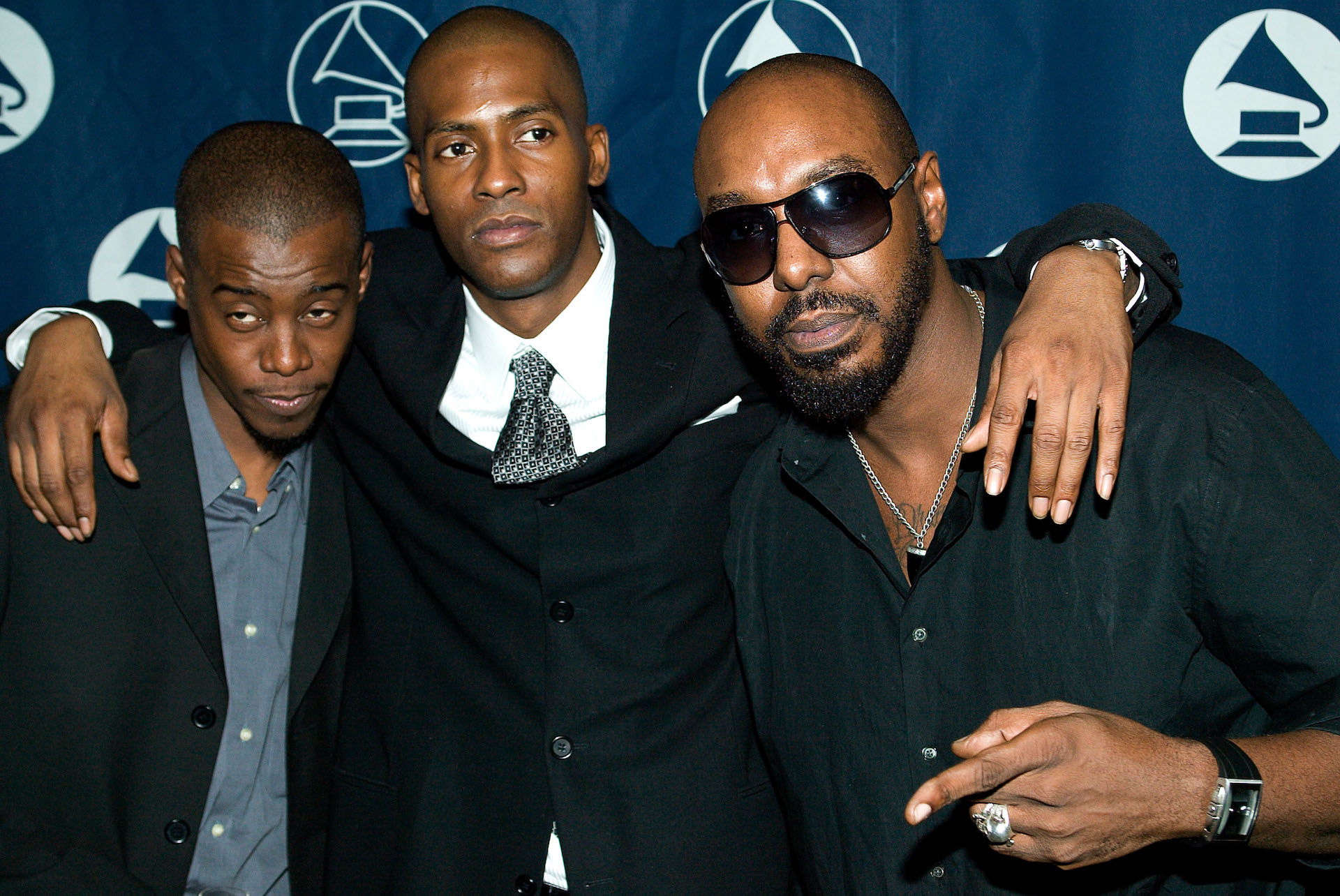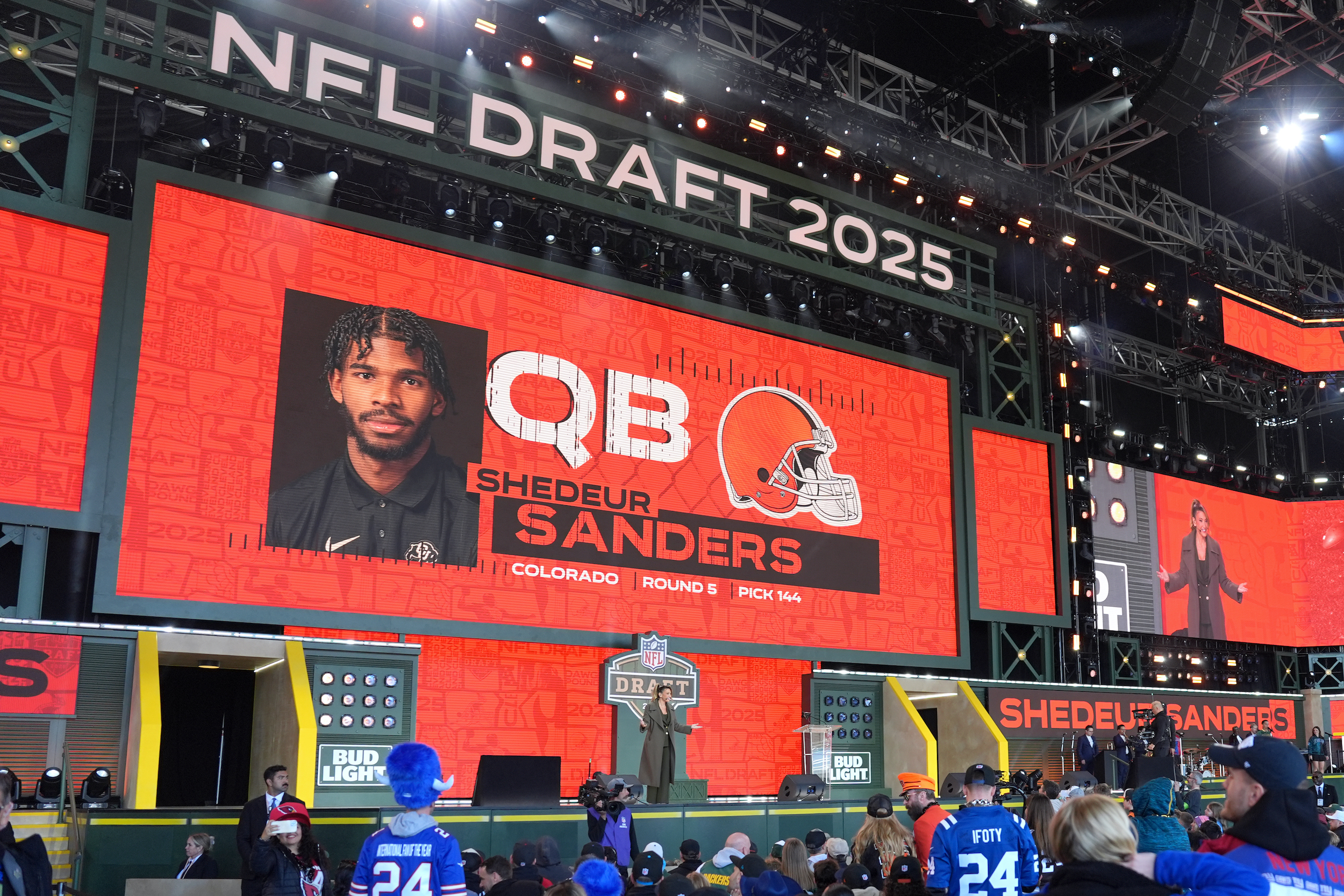I don’t particularly find “Top 5” or “GOAT” conversations interesting for any subject, least of all sports and rap. What I will say though is that no rap group means more to me on a spiritual and emotional level than Outkast. Two gifted MCs flying the flag for Southern rap while using the trappings of Parliament-Funkadelic, A Tribe Called Quest, Jimi Hendrix, and the Beatles to make a stew that sounded at once classically musical and completely futuristic. When they released Southernplayalisticadillacmuzik in 1994, it wasn’t just the debut of two talented young rappers; it was a blueprint for a particular sound of Atlanta hip-hop and Southern rap generally, which would be built and expanded upon in the ensuing years, eventually becoming the driving force of the entire genre.
But interestingly enough, on their first-ever single, “Player’s Ball,” the first voice to greet you is not Antwan "Big Boi" Patton's or Andre "3000" Benjamin's, but rather the voice of Rico Wade, one-third of production team Organized Noize and the makeshift leader of the Dungeon Family, the collective of young Atlanta musicians out of which Outkast grew.
Man, the scene was so thick, Lowriders, '77 Sevilles, El Dogs, nothin' but them 'Lacs, all the players, all the hustlers, I'm talkin' 'bout a black man heaven here, you know what I'm sayin'?
Wade’s soliloquy painted a scene for the song’s story of the Player’s Ball as a kind of Christmas activity (the song was originally requisitioned for their record label's Christmas album), but it also ends up setting the stage for the Southern sensibility as part of the hip-hop conversation. Neither Rico Wade, his Organized Noize partners Ray Murray and Pat "Sleepy" Brown, nor Outkast invented Southern rap or the Southern rap sound, but they were the first Southern act to really blow up and gain the respect of the New York establishment.
Rico Wade died on Saturday at the age of 52. His family announced his death online with no further details. Wade's death is a gut-wrenching loss for music, for hip-hop and for Southern rap especially. More than just a member of Organized Noize and the Dungeon Family, Wade was often their voice, their leader, the man with the most trusted ear. It all started when Wade was fresh out of high school, working at a beauty supply shop and making music at night with his friends, including Murray and Brown, in the middle of a burgeoning gold rush in Atlanta. People he knew of, like Dallas Austin and Jermaine Dupri, were starting to make waves nationally with their music. And then his actual friends, Tionne "T-Boz" Watkins and Lisa "Left Eye" Lopes, had just been corralled into the girl group TLC. Through all these connections, Organized Noize would get linked up with Perri "Pebbles" Reid and then eventually her husband at the time, L.A. Reid, the co-founder of LaFace records. Organized Noize had the platform and tools to do something big, they just needed the right vehicle.
That vehicle showed up one day, at that same beauty supply store where Wade worked, in the form of two young high school boys by the name of Antwan Patton and Andre Benjamin, who'd swung by to audition for Wade. He was so impressed by them that he immediately brought them to “the Dungeon,” a.k.a. the recording studio located in the basement of his mom's house. There they met a number of musicians, writers, and producers including the Goodie Mob members Cee-Lo Green, Cameron "Big" Gipp, Willie "Khujo" Knighton Jr., and Robert "T-Mo" Barnett, and DF affiliates Ruben "Big Rube" Bailey, Joi Gilliam, Frederick "Cool Breeze" Bell, and others.
Through those initial days in the Dungeon, the collective would eventually produce two foundational Southern rap albums, Southernplayalistic and Goodie Mob’s Soul Food, which, as much as I love Outkast, is easily the best Dungeon Family album and arguably one of the best hip-hop albums of all time. Wade's was the guiding hand through it all.
If you watch or read enough interviews with him you’ll probably come to realize that Wade's greatest contributions were in knowing how to get the best out of everybody, how to encourage people, how to finesse deals or situations for everybody, and how to talk anyone into anything. If you’ve seen him do interviews then you might understand how he was able to accomplish this; he was always personable and charismatic, his trademark stutter deployed with quintessential charm. He was the kind of guy you wanted to be around. And he was a guy who always tried to be fair, even when it came at his own expense.
There’s a moment in the Organized Noize documentary, The Art of Organized Noize, where he shares his brutally vulnerable feelings about being left out of the making of Speakerboxx/The Love Below. “That was arrogance on their part,” he said. He mentioned the various ways Organized Noize declined to take more of their artists’ publishing, like so many of his fellow producer-managers like Jermaine Dupri or P. Diddy, and that it wasn’t right for Outkast to not give Organized Noize even a shoutout during any of the awards they received for the 2004 album. While Wade said the tradeoff of everyone still being friends had made it all worth it, it was clearly a wound that hadn't completely healed.
It is a shame that both Wade and Organized Noize do not get their just due for their hand in cultivating the soulful, orchestral sound of Southern rap—when you hear piano organs or brass instruments or Funkadelic-style outrageousness in a rap beat, you’re hearing Organized Noize's influence. Their melding of the real with the digitally artificial, just as Outkast melded the street with the extraterrestrial, in a deep sense provided the roadmap for the style that currently predominates hip-hop and therefore popular music. And Wade specifically has left his fingerprints on so much of rap's present, most conspicuously on Future, Wade's little cousin who grew up to be one of the biggest rappers in music today. Hip-hop is deeply indebted to Rico Wade, and though he’s gone too soon, I can only hope he actually did make it to the black man’s heaven he romanticized back at the very beginning of it all.






